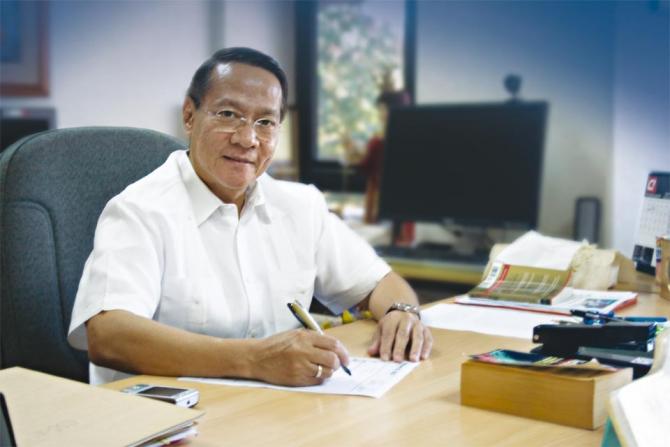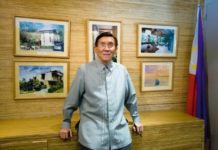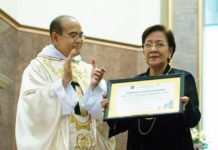PUBLIC service runs deep for new Civil Service Commission (CSC) Chairman Francisco Duque III.
After leaving his post as Department of Health (DOH) secretary last January 10, Duque is set to face the challenges of leading the government’s personnel agency with a doctor’s touch: health and wellness of civil servants as one of his top priorities.
However, Duque is not overwhelmed by the technical roundabouts of his new job, but sees it as a potential goldmine for learning.
“The CSC will be a good chance for me to improve professionalism in the bureaucracy,” he said in an interview on dzXL radio.
Duque has also been appointed as the chair of the Public Sector Labor-Management Council last February 10.
Like father, like son
Duque may still be learning the ropes of heading the CSC, but he is no greenhorn to leading government agencies past difficult time. He was Health Secretary when DOH dealt with the Ah1N1 outbreak last year.
Duque has his father, a former Health Secretary, to thank for the composure in and adept at handling of alarming health situations during his stay with the DOH from 2001 to last January.
Francisco Duque II was named father of the Medicare program in 1961. With the vision to give poor Filipinos health privilege, he rallied for equal distribution of wealth and formulated programs to elevate the status of the less fortunate.
“My father and I have the love of public service,” Duque told the Varsitarian.
Citing health service shortage as the toughest challenge in DOH, he focused on growing health investments, ensuring universal access to fundamental healthcare and the quality and affordability of goods and services.
“It is the sensitivity to the society’s needs that should matter most and the concern for the less fortunate,” Duque said.
Commitment to health
Before joining government service, Duque worked for almost 10 years in universities and hospitals such as University of Pangasinan, Lyceum-Northwestern University General Hospital and Lyceum-Northwestern University in Dagupan City.
From 1999 to 2000, Duque served as the director of Philippine Health Insurance Corporation (Philhealth), where he slowly fulfilled the aspirations of his father and continued his legacy to the health sector.
“His vision is my action,” he said.
It was in 2001 when Duque was appointed Health undersecretary. He admitted that malnutrition challenged him most.
“We have to improve the health and nutrition of children since they are the future of our race,” Duque said.
He also served as the vice chairman of the 59th World Health Assembly Committee of the World Health Organization in Geneva, Switzerland in 2006.
Apart from CSC and the DOH, Duque has also worked in the Philippine Sports Commission, Philippine Charity Sweepstakes Office, Commission on Population, and National Nutrition Council.
Doctor’s dilemma
“During my Thomasian days, I was just an ordinary student. I never made it to the dean’s list or graduated cum laude,” said Duque, who took Zoology as his pre-med.
After graduating in 1978 from college, Duque found himself at a career-path crossroad. The thought of going to law school, while his father tried to send him to a military school, Duque chose neither.
“I preferred being a doctor because I think it was a more clever choice,” he said.
But Duque did not escape the punches of medicine school.
“Medicine entails a lot of seriousness and determination. The commitment to exert more effort and drive for direction is clearer,” he said.
As if it were not enough, Duque admitted that much of the pressure came from his own family.
“We are five (doctors) in the family adding to my father’s respected reputation as the former secretary of health and distinguished UST alumnus,” he said.
After earning his degree in medicine, Duque took post-graduate studies at Georgetown University School of Medicine in Washington, D.C. from 1985 to 1988, earning a master’s degree in Pathology.
Duque also went to Harvard University and took a post-graduate course of Executive Education on Health Program Management in 1992.
Thomasian upbringing
Duque said his Thomasian values helped him survive the medicine practice, government service, and studying in prestigious universities abroad.
According to Duque, imbibing the University’s three Cs (Commitment, Competence and Compassion) as well as the values for family and Christian life, charity, and empathy to other people are just a few things he learned in UST that honed him to become a true person of service and leadership.
“I always believe that we Thomasians are essentially good people who want to be instruments of change to make the society better and healthier,” Duque said.











